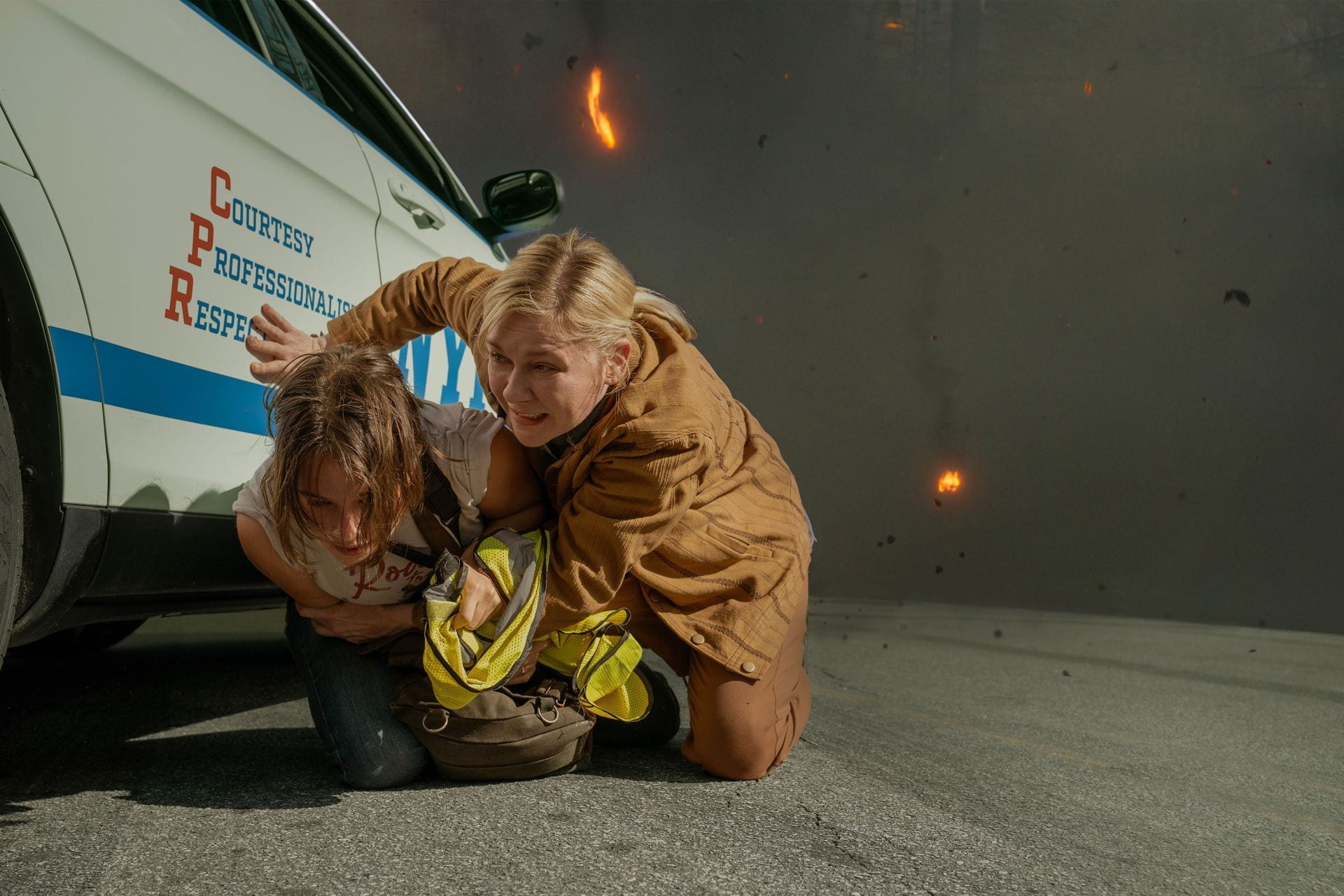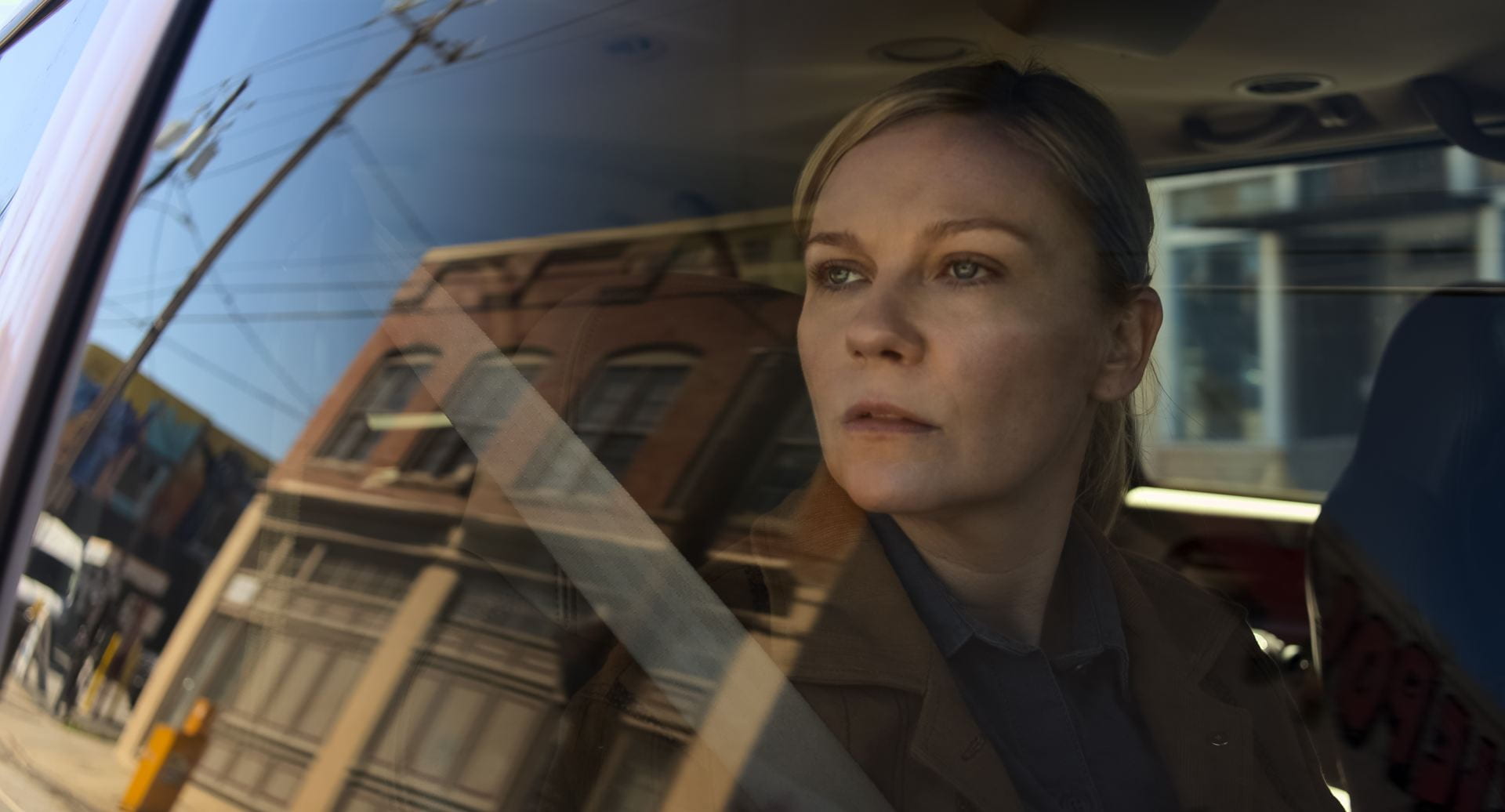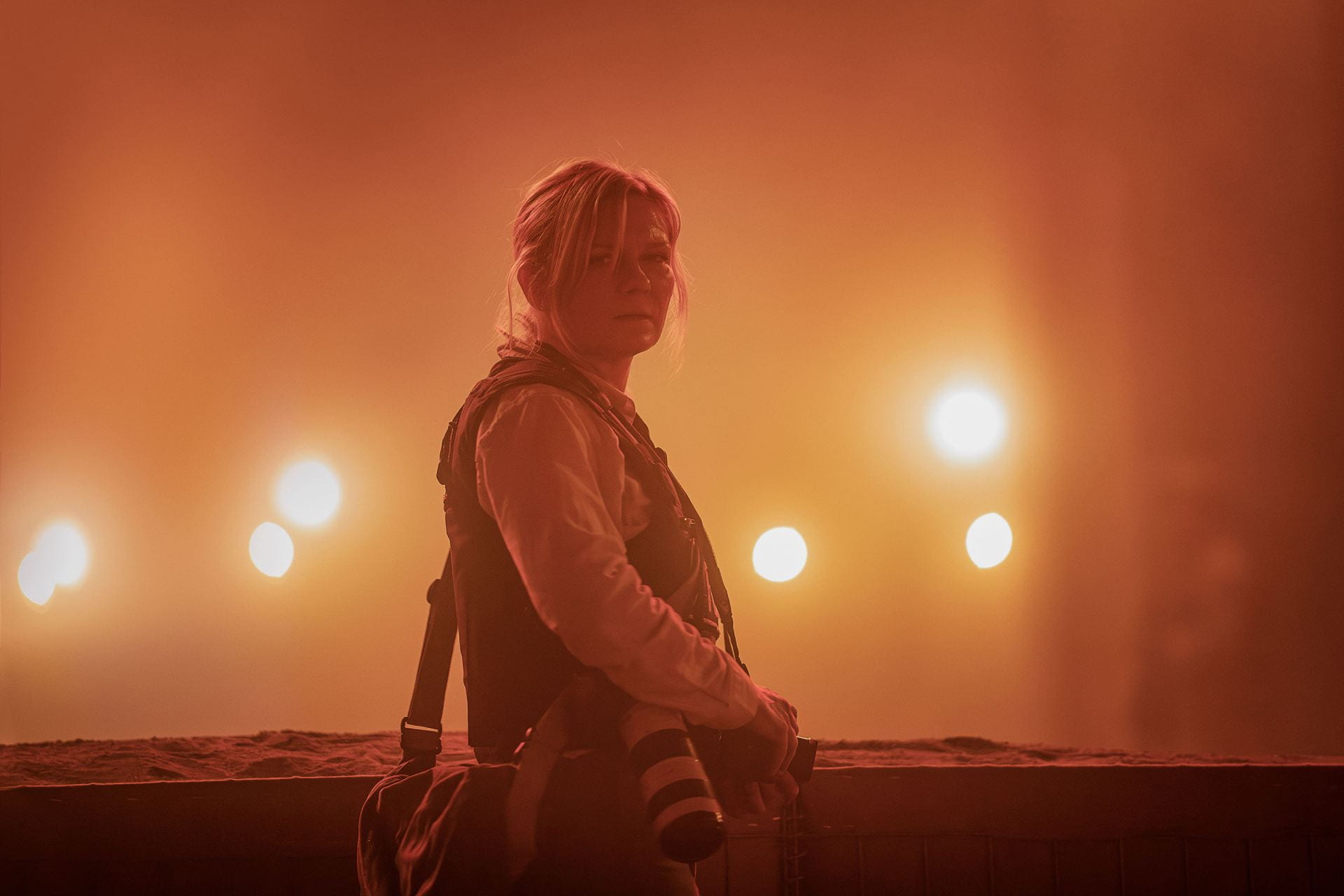
Cailee Spaeny, left, and Kirsten Dunst in the movie “Civil War.” Credit: A24 (via TNS)
A cursory look through any movie review website reveals audiences are polarized on Alex Garland’s latest — and perhaps final — film, with equal amounts of high praise and harsh criticism being doled out.
Of course, this is a bit ironic given the movie centers around an America divided by a dystopian civil war. The tension felt throughout the 109-minute runtime of “Civil War” may very well translate into some heated debates in the movie theater lobby.
“Civil War” follows a group of photojournalists, all of whom are in different stages of their careers. Together, they tag along the Western Forces of California and Texas’ warpath, which is further supported by the Florida Alliance, as they march to Washington, D.C., to overthrow the president of the remaining allied states.
It is completely unclear what started this national struggle; instead, the film chooses to place more focus on the journalists’ periled journey. Particularly, it examines the mentorship role that older journalists, portrayed by Kirsten Dunst (“Marie Antoinette”), Wagner Moura (“Narcos”) and Stephen McKinley Henderson (“Dune”) have on an aspiring young journalist named Jessie, played by Cailee Spaeny (“Priscilla”).

In the near future, a war photographer (Kirsten Dunst) witnesses a nation on the brink in “Civil War.” Credit: A24 (via. TNS)
Never exploring the titular conflict’s backstory, “Civil War” is apolitical in nature. Though there are some allusions to modern-day politics, they are subject to watchers’ personal analyses; this concept is especially resonant when it comes to “the President,” who is played by Nick Offerman (“Parks and Recreation”) and vaguely resembles Donald Trump.
For the most part, the plot is not an exact reflection of any current events, made painfully obvious by the fact California and Texas join forces in this fictitious world.
The film’s lack of a political stance has enraged some audiences, who consider its failure to act as a persuasive piece for America’s already divided political climate to be cowardly. To go into “Civil War” with an expectation for social commentary, however, is a deeply flawed decision.
Those who lash out at “Civil War” for feeling empty and devoid of meaning fail to realize the feeling of emptiness is exactly what they were intended to feel. “Civil War” barely possesses any political or patriotic undertones; instead, it’s a harsh look into the voyeurism of visual media in an age of senseless violence.
The beautiful juxtaposition of extreme violence happening around the journalists against the photos they take only seeks to emphasize this point. The sound design in these moments, as with the entire film, creates a tragic duet between the agony of war — of people screaming as they’re shot down by bullets that feel all too real — against the complete silence of the still, black-and-white photos woven into the scene. The insistence on black and white, of course, demonstrates the glorification of war and how blood, gore and death are lost in translation between the world and the camera that separates it.
“Civil War” is expected to be Garland’s last directorial project for a while; in fact, in recent interviews with The Guardian and IndieWire, he cited concerns with actors feeling comfortable on set and messages becoming muddled during the production process as reasons for his possible hiatus.
Garland’s reasoning is directly echoed across “Civil War,” which may very well be his best addition in a reel that already included 2014’s “Ex Machina” and 2018’s “Annihilation.”

Kirsten Dunst stars in “Civil War.” Credit: A24 (viaTNS)
In cinema, like in “Civil War,” the ugly truth is that the human spirit is often warped in the process of capturing it through film. It’s true that “Civil War” has all the components of a technical masterpiece: some breathtaking cinematography in the usual glossy, dark vein of Garland’s previous films, outstanding acting performances — particularly a brief appearance from Jesse Plemons in the film’s most nerve-wracking scene — and impressively realistic sound design.
Even so, there is a certain dread that comes from leaving the theater and realizing that all of these filmic elements, as well as the political red herring narrative, may have just distracted audiences from the real message of the film. And ultimately, it is that diversion that intrinsically proves the movie’s point is unfortunately accurate.
Rating: 4.5/5


